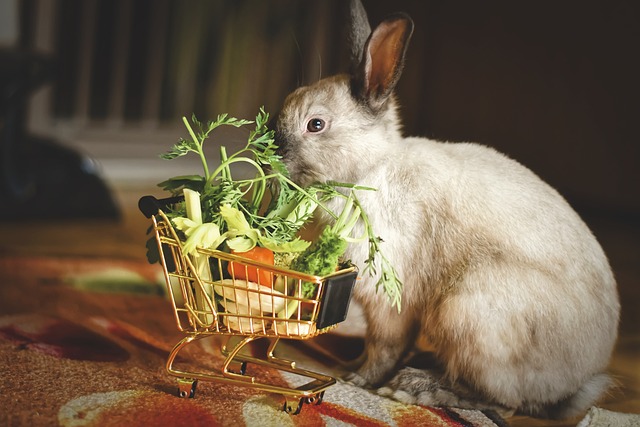
Feeding rabbits is an important aspect of their care, whether you keep them as pets or as livestock. A well-balanced diet is essential for maintaining the health and well-being of your rabbits.
The first thing to consider when feeding rabbits is their digestive system. Rabbits are herbivores, and their digestive system is designed to process high-fiber, low-fat, and low-sugar diets. A diet that is too high in fat or sugar can lead to obesity, dental problems, and other health issues.
Hay is the foundation of a rabbit’s diet. Hay is high in fiber and low in fat and provides the necessary roughage for healthy digestion. Timothy hay, orchard grass hay, and meadow grass hay are good choices for rabbits. Alfalfa hay is high in calcium and protein, so it should only be given to rabbits under six months old, pregnant or nursing rabbits, or rabbits that are underweight.
In addition to hay, rabbits also need fresh vegetables and fruits. Dark leafy greens like kale, collard greens, and spinach are good choices, as are root vegetables like carrots and beets. Fruits should be given in moderation because of their high sugar content. Small pieces of apple, pear, or banana can be given as an occasional treat.
Pellets are another common component of a rabbit’s diet. Pellets are a concentrated source of nutrition and should be given in limited quantities. Pellets should be specifically formulated for rabbits and should be free of seeds, nuts, and dried fruits, which can be harmful to rabbits.
Fresh water should always be available to rabbits. Water should be changed daily, and the water bottle or bowl should be cleaned regularly to prevent bacterial growth.
It’s important to monitor your rabbit’s weight and adjust their diet as necessary. Overweight rabbits may need to be fed less pellets and fewer treats, while underweight rabbits may need more hay and pellets.
In summary, feeding rabbits requires a balanced diet of hay, vegetables, fruits, and pellets. It’s important to provide fresh water at all times and to monitor your rabbit’s weight and adjust their diet as necessary. By providing a healthy diet, you can help ensure that your rabbits live a long and healthy life.




